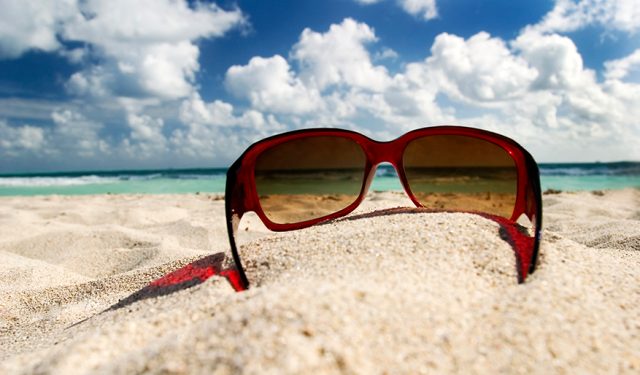
Holding onto a perfect 20/20 vision is nearly impossible. The natural effects of aging, genetic disorders, dietary practices, and normal wear and tear mean that almost everyone will suffer from decaying eyesight over the course of their lives.
Many struggles with nearsightedness, farsightedness, glaucoma, macular degeneration, and several other disturbing eye disorders. These eye disorders affect millions every year and cause depression and many other mental disorders that come along with them. Maintaining your vision is important regardless. It is one of the core blessings of enjoying life. One can’t even imagine the pain of losing their eyesight. Good eyesight means assured safety as well as better interaction with the public.
While it is inevitable that even if you manage to avoid most diseases the health of your eyes will eventually decline, there are habits that you can adopt now to give yourself a better chance of maintaining your eyesight from helping it to decay early. Though using these methods is not a guarantee perfect vision for the rest of your life, they can make a big difference in the rate of decline. Here are five tips/methods one can dwell on to maintain their eyesight for as long as possible.
1. Eat the right foods

Eye health is directly proportional to your health in general. There are food groups that are extremely beneficial for the health of your eyes. Adding those foods into your regular diet could help you maintain the condition of your eyesight. One food that for example is great for eye health is carrots. Carrots contain the right amount of nutrients that your eyes need to function well and are extremely beneficial for sustaining long-term eyesight.
Other foods that can help with maintaining good eyesight include fish, nuts, seeds, citrus fruits, and leafy green vegetables. A steady diet of these foods can promise great vision. If started early on in life, your diet will keep your eyes with very well-supplied and right nutrients, giving them a better chance at longevity.
2. Reduce the impact of screentime
For a lot of us, our whole lives can take place on devices. In fact, how the world is taken over with screens, is gruesome to our health in general. We keep our calendars in our phones and have alerts set up for various responsibilities. We consume entertainment via television or tablets. Much of our work is done on computers and we are keen to stick our eyes to the screens without realizing how long they have been watching the screen.
It may be difficult to cut down on screen time enough to help our eyes recover from the damage of blue light. What one must do however to reduce the direct exposure of these screens is to try to take breaks from staring at screens as much as possible. If you still need to use these devices out of necessity, invest in a pair of blue light glasses that have lenses that cut down on the strain our eyes experience when viewing a screen. It is also highly recommended by professionals that the screens are avoided right before bedtime. It is a great key to sustaining eye health and it also increases the effectiveness of your sleep patterns.
3. Protect your eyes from the sun

The easiest way to protect your eyes from the direct rays of sun is to wear sunglasses. However, you should not just invest in cheap sunglasses. Purchase the kind that offers high-quality UV protection that will last. During the spring and summer when you spend more time outside in the warm sun, it is important to keep your eyes safe from the harmful side effects that come from exposure.
You could also purchase a hat or use an umbrella to create shade for your eyes. Driving on a sunny day can also damage your eyes while making visibility more difficult, leading to a higher risk of an accident that can cause devastating injuries and cause you to want to learn more about hiring a personal injury attorney. Wear sunglasses while driving on bright days both to protect your eyes and make operating the vehicle easier.
4. Get the right amount of sleep
Your sleep habits can also have a significant impact on the condition of your eyes. A lack of sleep can dry your eyes out and lead to irritation and difficulty focusing. Sleeping gives the body a chance to restore its various functions and recover from usage during the day.
If your patterns are irregular or you neglect the optimum amount of sleep that you need, it can negatively affect how your eyes recover. The less time for restoration you give them, the higher the risk of losing your eyesight sooner or suffering from other optical diseases. Try to maintain a consistent sleep schedule for better health overall and specifically for your eyes.
5. Live a physically healthy lifestyle

The condition of your body affects the condition of your eyesight. Taking care of your body through exercising and avoiding bad habits can help maintain eyesight. Working out will improve your ability to deliver nutrients with better blood flow and a stronger heart.
Your eyes need these supplies to carry out their function and will suffer if the nutrients are not being delivered. Additionally, bad habits like smoking can be drastic for your eyesight. Degeneration can happen much earlier for heavy smokers, and they are also at a higher risk of cataracts. Take care of your body’s physical condition and your eyes will benefit.
The sooner the better
If you start investing in your optical health today, you will have the best chance of maintaining your eyesight later in life. Changing your diet, protecting your eyes from screens and the sun, sleeping consistently, and keeping the rest of your body healthy are all great methods for keeping your eyes in great condition.
As with other aspects of health, the longer you work these habits into your lifestyle, the more likely you will see the benefits. Get started today on maintaining your vision with these strategies.







